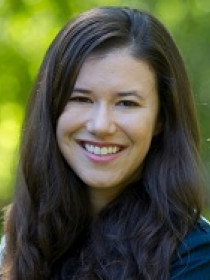
Sarah Bush
About Sarah
Bush's research examines how international actors try to aid democracy, promote women’s representation, and support elections in developing countries. Prior to coming to Yale, Dr. Bush taught at Temple University and held a fellowship at the Harvard Kennedy School. Her work has also been supported by grants from the National Science Foundation. She received a Ph.D. in Politics from Princeton University in 2011.
Contributions
Promoting Women's Political Representation Overseas
In the News
Publications
Shows that in the countries where aid officials worry most about ensuring that democracy aid supports other U.S. policy objectives - namely, countries that are important for U.S. foreign policy - they will fund American NGOs relatively more.
Argues that an American endorsement of women in politics has no average effect on popular support for women's representation and that domestic patterns of support and opposition to autocrats determine citizens' receptivity to policy endorsements, with policy endorsements of foreign-supported reforms polarizing public opinion.
Explores recent shifts in the nature of U.S. government-funded democracy assistance programs that have made them less likely to confront autocratic governments and more focused on measurable outputs, and gives recommendations on how to avoid these pitfalls and engender more positive outcomes.